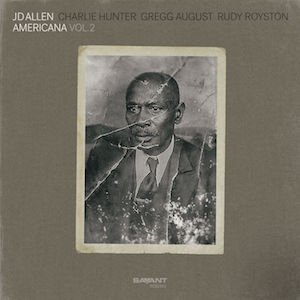Label: Blue Note Records, 2024
Personnel - Bill Frisell: guitar; Thomas Morgan: bass; Rudy Royston: drums + Brussels Philharmonic and Umbria Jazz Orchestra.
The incomparable Bill Frisell, whose remarkable guitar prowess and compositional genius have left an indelible mark on the jazz scene for over four decades, ventures into new territory with Orchestras, a double album that sees him expanding his trio sound with the accompaniment of two European orchestras. This ambitious project features arrangements of some of Frisell's most iconic original compositions, along with a jazz standard, a couple of American folk songs, and a piece by Michael Gibbs, who provides all the arrangements on this captivating release. Frisell’s trio, consisting of the adaptable Thomas Morgan on bass and the tastefully diverse Rudy Royston on drums, imbues each piece with an intimacy that lends emotional potency to the ensemble's performance.
The CD1, featuring the Brussels Philharmonic under the baton of Alexander Hanson, begins with the grandiose cinematic quality of Gibb’s “Nocturne Vulgaire”, later jazzified with bluesy guitar chops set against an airy accompaniment. The standard “Lush Life” by Billy Strayhorn follows, elegantly spreading glamour and romanticism. “Beautiful Dreamer”, an early folk piece by Stephen Foster, waltzes slowly in a richly layered communion impregnated with a deep Southern feel.
Another heart-rending waltz, “Throughout”, is nestled among a collection of Frisell’s old favorites. Tracks like “Rag” traverse from folk revivalism to jazz fanfare with refinement and excitement, while “Electricity”, a country-influenced number pelted with guitar harmonics, loose drumming, and unobtrusive bass lines, becomes slightly reggae-ish as a consequence of the horn section’s counterpoint. In turn, “Richter 858 No. 7”, solidly sustained by a rhythmic foundation based on an eight-note, six-beat cycle bass groove, culminates in a majestic orchestral crescendo with the strings on vivid display.
CD2 further captivated my ears, with the musicians coloring and texturing agreeable sonic landscapes, reaching a genuine universality in their musical commitment as they listen to each other so closely. Moreover, the repertoire contains two of my favorite Frisell tunes, both enhanced by magnificent arrangements and executions. They are “Strange Meeting”, here featuring a disarmingly simple guitar solo, and “Lookout For Hope”, a marvelous jazz-rock hybrid aggrandized by Royston’s fine drum chops by the end. There’s also “Levees”, a stress-free, ternary exercise with bold horn lines, while Frisell’s guitar counterpoints by exuding more sparky than mellow tones.
Armed with Gibbs’ impeccable arrangements, Orchestras showcases Frisell's enduring creativity and marks yet another significant chapter in his illustrious discography.
Favorite Tracks:
01 (CD1) - Nocturne Vulgaire ► 04 (CD1) - Rag ► 01 (CD2) - Lookout For Hope ► 03 (CD2) - Strange Meeting








